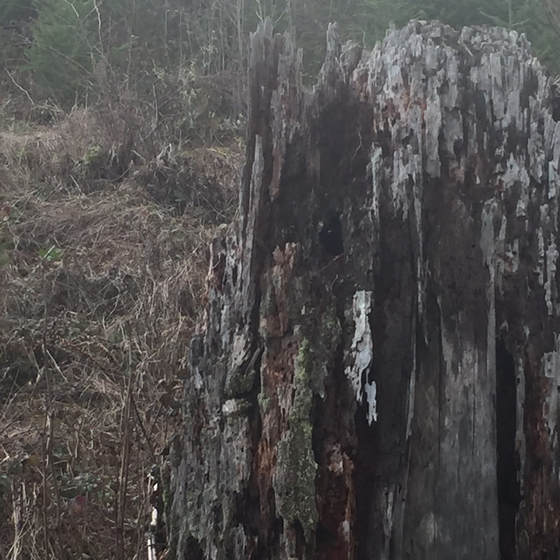 Answers to complex issues often start with simple steps, don’t overlook the power of listening to affect change in the achievement gap. We recognize that in nearly all facets of life, from upbringing to education and on through professional opportunities there are historical achievement gaps that impede the application of good things come to those who work for them. While there is no substitute for hard work, regardless of one’s starting point, there should be little dispute that some start their journey with more obstacles that others. Recently there was a video floating around the web that attempted to explain the impacts of privilege with a group of students preparing for a simple race. Recognizing these obstacles helps us to see that we are not always comparing apples to apples when thinking about where we start our journey. Listening to fuel change includes three key aspects: Recognizing our role, collaborating for creative solutions and following through with our vision for making the world suck less (#MTWSL), we have to ask – where do we start? Recognizing my own role How do we level the playing field to create equitable opportunities for those who have been overlooked and/or underprivileged in their pursuit of life, liberty and the pursuit of happiness? While the question is loaded and rather complex, the answer may be closer than we realize. Dr. Hugo Slim is viewed as a leading scholar in humanitarian studies and ethics. Slim notes, “The testimony of individual voices reveals the experience of hidden groups, and counters the bias of those who speak for or ignore them.” Perhaps in so saying Dr. Slim echoes Michael Jackson in calling for each of us to look at the person in the mirror and ask whether he is listening for a change. Who has ignored the voices of those who have been overlooked? Me. Who has a bias as well as a misplaced ego is speaking for others who are underprivileged? Me. Collaborating for creative solutions Aid to an individual, family, community or nation effectively comes in the form of creative collaboration rather than supplanting the culture of the parties being assisted. David Dollar’s work in reviewing community development on an international level has many lessons applicable to localized assistance. Dollar notes in Eyes Wide Open that External resources can be helpful in assisting the local stake holders to analyze options, implement unique plans for systemic changes and evaluate these revolutions as they gain momentum. Collaboration requires those who help to listen rather than speak for; to listen rather than ignore voices from within the community being served. Listening to the testimony of others, according to Dr. Hugo Slim, “Has the capacity to break down generalisations [sic] and misinformation about communities, their economies, needs, power structures, social organization and goals.” Who can do more damage than good if their good intentions are not put in check? Me. Following through with our vision of equality In committing our current international efforts to developmentalism we often seek to paint with the broad strokes of best practices and apply those principles to all situations. We apply micro success, which should be celebrated, to macro solutions and don’t achieve the same results. Unfortunately answers are not one size fits all. While many of the same issues affect people and communities across the globe, the answers to those issues are as numerous as the cultures they are embedded in. Progress cannot trample over or disregard the distinct nature of those beliefs, traditions and cultures. This diversity creates both unique challenges as well as core foundations for sustainable solutions. Who can do more good by listening rather than speaking? Me. In short, if we want to make positive changes to reduce the achievement gap and increase equitable opportunities, the place to start is a simple as simply listening. Recognize bias, hold your tongue and exercise the sense of hearing. “. . . the testimony of individual voices reveals the experience of hidden groups, and counters the bias of those who speak for or ignore them. It has the capacity to break down generalisations [sic] and misinformation about communities, their economies, needs, power structures, social organization and goals. While this may complicate the design of relief and development projects, it may ultimately make them more equitable and effective.” - Dr. Hugo Slim, Listening for a Change IZ Ventures more than business coaching & consulting - we help you Connect, Collaborate & Conquer. Practical principles of leadership - video on listening
0 Comments
Leave a Reply. |
AuthorThoughts on personal and professional development. Jon Isaacson, The Intentional Restorer, is a contractor, author, and host of The DYOJO Podcast. The goal of The DYOJO is to help growth-minded restoration professionals shorten their DANG learning curve for personal and professional development. You can watch The DYOJO Podcast on YouTube on Thursdays or listen on your favorite podcast platform.
Archives
March 2023
Categories
All
<script type="text/javascript" src="//downloads.mailchimp.com/js/signup-forms/popup/unique-methods/embed.js" data-dojo-config="usePlainJson: true, isDebug: false"></script><script type="text/javascript">window.dojoRequire(["mojo/signup-forms/Loader"], function(L) { L.start({"baseUrl":"mc.us5.list-manage.com","uuid":"b9016446bd3c6a9f0bd835d4e","lid":"83282ffb9e","uniqueMethods":true}) })</script>
|
Jon Isaacson |
Connect. Collaborate. Conquer.
© COPYRIGHT 2015. ALL RIGHTS RESERVED.
|



 RSS Feed
RSS Feed